
REMEMBERING THE CIVIL WAR

An imprint of The Rowman & Littlefield Publishing Group, Inc.
4501 Forbes Blvd., Ste. 200
Lanham, MD 20706
www.rowman.com
Distributed by NATIONAL BOOK NETWORK
Copyright 2020 Michael Barton and Charles Kupfer
All rights reserved . No part of this book may be reproduced in any form or by any electronic or mechanical means, including information storage and retrieval systems, without written permission from the publisher, except by a reviewer who may quote passages in a review.
British Library Cataloguing in Publication Information available
Library of Congress Cataloging-in-Publication Data available
ISBN 978-1-4930-4175-6 (hardcover)
ISBN 978-1-4930-4176-3 (e-book)
 The paper used in this publication meets the minimum requirements of American National Standard for Information SciencesPermanence of Paper for Printed Library Materials, ANSI/NISO Z39.48-1992.
The paper used in this publication meets the minimum requirements of American National Standard for Information SciencesPermanence of Paper for Printed Library Materials, ANSI/NISO Z39.48-1992.
CONTENTS
Guide
Most Civil War soldiers wrote letters home, many kept diaries, and some wrote memoirs after thew ar was over. Civil War memoirs thence became an American literary genre. They are an account of the most momentous events in a mans life, and a record of his part in his countrys history. They cover duty, boredom, fatigue, distance from home, and yearning for family. They detail the soldiers ground-level view of tactics and strategy, his admiration for his superiors or else disdain, his fellowship with comrades or else rebuke. Memoirs tell about his encounter with the enemy and the enemys country. They reveal the shock of gore, the gasp of death, and the turns between bravery and fear. They let us imagine how, and wonder why, the author could charge against entrenched troops time and again. We read the veteran recalling the din and smoke of cannon and then the screams and smells. He might still feel the pain of a wound and its mending, but there was little talk of tears. Memoirs inform us that a singular difference between the Civil War and modern war was the fate of horses. And there was the marching, always the marching. In the end, Civil War memoirs were the veterans last chance to answer the question, What did it all amount to? Was it worth the struggle to leave the country, or to defend it? There was much to remember and write.
Most Civil War memoirs were not published immediately after a soldiers service. Rather, they were usually the remembrances of older veterans, especially former high-ranking officers, their creation occasioned by an upcoming wartime anniversary, or a regimental reunion, or perhaps the soldiers thoughts of his own mortality. The sentimentalized reminiscence industry, as historian David Blight calls it, was most productive after 1880. The governments stimulus to the industry was publishing The War of the Rebellion: A Compilation of the Official Records of the Union and Confederate Armies , consisting of 128 volumes produced between 1880 and 1901; indeed, the most detailed memoirs could hardly have been written without the use of the Official Records , although one could say that memoirs were not necessarily enlivened by the author quoting dispatch after dispatch from the OR.
Some memoirs were written with the soldier imagining that his local community would be the audience. One of our authors, Sgt. Christian Lenker, was asked by his local newspaper, the Pottsville Evening Chronicle , to provide his reminiscences on a weekly basis, which he did for over three years. Some authors strived to attract a national readership, and some of those did quite well. Other memoirs were simply intended for their descendants, the authors announced at the outset. Whatever the audience, the War of the Rebellion is, so far, our most remembered war.

For this anthology we first located memoirs and comparable documents from the major battles of the war in the order that they occurred. By major battles we mean those that had the greatest number of casualties, such as Gettysburg, Chickamauga, Spotsylvania Court House, Chancellorsville, the Wilderness, Stones River, Shiloh, and Antietam. The memoirs we have chosen include many that modern historians have praised. A sampling of our choices follows.
Ambrose Bierce, for example, is an extraordinarily compelling memoirist of the Shiloh battle and the edgiest writer in this collection. Unlike some memoirists, he is easily readable by moderns. He has been recognized as alone among important American writers to have served four years in the war, where he was both wounded and embittered. We located his work in the public domain, but readers wanting more should refer to Phantoms of a Blood-Stained Period: The Complete Civil War Writings of Ambrose Bierce (2002), edited by Russell Duncan and David J. Klooster.
Sam Watkinss Co. Aytch, Maury Grays, First Tennessee Regiment; or, A Side Show of the Big Show (1900) is a Confederate soldiers captivating reminiscence, some say the best, and a rarity coming from an enlisted man. His memories were a remarkably effective platform for Ken Burnss much-admired public television series on the Civil War. Watkinss text is a treasure chest of quotable observations.
William Tecumseh Shermans Memoirs of General W. T. Sherman (1875) was one of the early Union commentaries on the war and is still greatly valued for its voice and candor. In Patriotic Gore: Studies in the Literature of the American Civil War (1962), literary critic Edmund Wilson called Shermans two volumes of writing amazing. The esteemed Library of America has republished Shermans memoirs, an indication of their literary and historical importance. We have excerpted the original edition.
Alongside excerpts from Shermans Memoirs we include those of Gen. Philip H. Sheridan, the Union commander who triumphed in the Shenandoah Valley campaign and pursued Gen. Robert E. Lee to Appomattox. After the war Sheridan led troops against the Indian tribes in the West.
The controversial Confederate general James Longstreet wrote his version of the war, From Manassas to Appomattox: Memoirs of the Civil War in America (1895), late in the century and as a contribution to the resumption of fraternity. Indeed, he asserted that because of the war , there was a broader and deeper patriotism in all Americans. It may be too much to say that Longstreet was despised throughout the South after his debatable actions at Gettysburg; however, joining the Republican Party after the war and befriending Grant cannot have helped his reputation among his former comrades. We use Longstreets memoirs a number of times in the anthology.
The recollections of Confederate general Edward Porter Alexander, first published in 1907, are highly praised today for his rich and intelligent observations. He commanded the extraordinary bombardment in advance of Picketts charge at Gettysburg. Again, we have excerpted the public domain edition, but we recommend historian Gary Gallaghers scholarly edition for readers wanting the entire work.
Ulysses S. Grants recollections, Personal Memoirs of U. S. Grant , published in 1885, are honored for their detail, restraint, and revelation of the authors personality. Plainspoken, matter-of-fact, spare, telling and quick, as modern commentators describe them, his memoirs were published in 1885, a few months after his death from throat cancer. With Mark Twains collaboration, Grant had submitted his final drafts a few months earlier. They sold more than 300,000 copies, sparing his family from poverty. His wife, Julia, received a first royalty payment of $200,000, a record at that time. We have excerpted the original edition; however, the Library of America offers a handsome, expertly edited, one-volume version today, including Grants letters to his wife and a thorough chronology of his life, including even his final notes to his doctor.
Next page

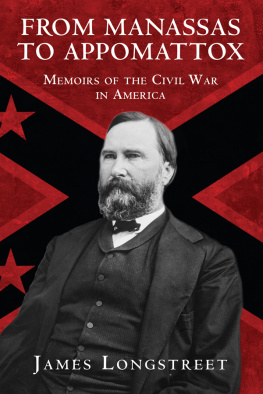
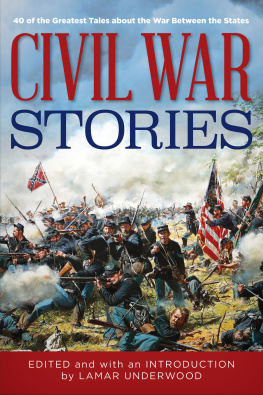
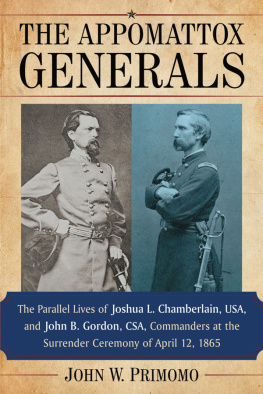
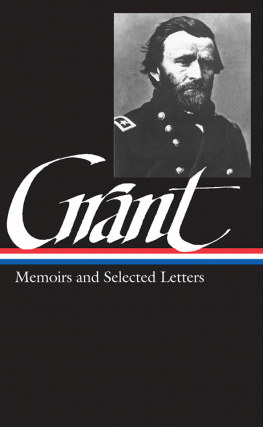



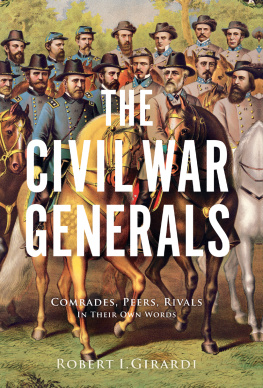
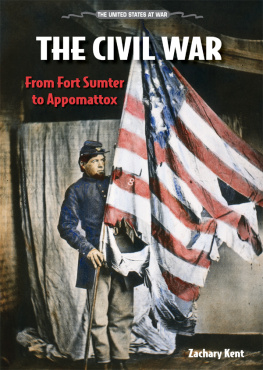


 The paper used in this publication meets the minimum requirements of American National Standard for Information SciencesPermanence of Paper for Printed Library Materials, ANSI/NISO Z39.48-1992.
The paper used in this publication meets the minimum requirements of American National Standard for Information SciencesPermanence of Paper for Printed Library Materials, ANSI/NISO Z39.48-1992.